Events
| Name | organizer | Where |
|---|---|---|
| MBCC “Doing Business with Mongolia seminar and Christmas Receptiom” Dec 10. 2025 London UK | MBCCI | London UK Goodman LLC |
NEWS
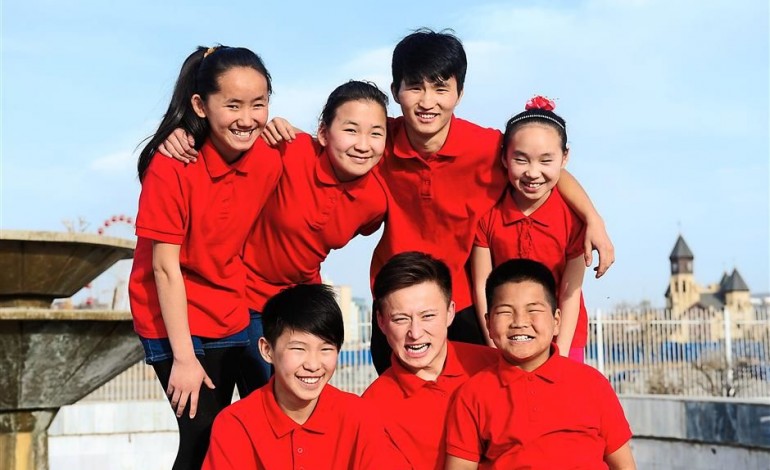
Mongolian Teams win 4th and 5th places at PUBG Mobile Global Championship www.montsame.mn
The PUBG Mobile Global Championship (PMGC) was organized in Jakarta, Indonesia on January 6-8. The tournament was jointly organized by James Yang, director of PUBG Mobile Global Esports, the Esports Federation of Indonesia, and the Indonesian Ministry of Tourism and Creative Economy.
From Mongolia, the Godlike Stalwart won 4th place with 156 points without securing a single chicken dinner (round win) and was awarded USD 200 thousand in prize money. The IHC Esports was placed 5th, winning a prize of USD 151 thousand.
Mongolian player "TOP" became the MVP (Most Valuable Player) of the tournament with his outstanding performance in the finals.
The grand finals of PMGC lasted for three days. Unfortunately, the first day’s low performance of the Mongolian team dragged down their last two day’s victory.
S2G Esports (Turkey) became the champion of the 2022 PUBG Mobile Global Championship (PMGC) with USD 400 thousand in prize money, followed by DRS Gaming from Nepal and Alpha 7 from Brazil.

61 countries now visa-free to Mongolia www.news.mn
Mongolia exempted citizens of 34 countries from visa requirements for up to 30 days until the end of 2025. These countries include 32 European countries such as Austria, Belgium, Hungary, France and Denmark, as well as Australia and New Zealand.
As a result, the number of visa-free travel countries to Mongolia has reached 61.
The Mongolian government has also decided to declare 2023 and 2024 as “Years to Visit Mongolia.”
Currently, Mongolia’s economy is largely dependent on its export-oriented mining sector. Developing tourism is seen as the most viable way to diversify its economy.
Mongolia has set itself a goal of welcoming one million foreign tourists and earning 1 billion U.S. dollars from tourism in 2024.

Largest China-Mongolia land port implements downgraded COVID-19 management for passenger checks www.globaltimes.cn
Erenhot Port in North China’s Inner Mongolia Autonomous Regions, the largest China-Mongolia land port, conducted latest downgraded COVID-19 management for passenger checks on Sunday.
According to the staff of Erenhot customs, about 300 Mongolian passengers have filled the declaration form in advance and took chartered bus departed from Zamyn-Uud Port in Mongolia to the Erenhot port on Sunday.
“Today’s number of Mongolian passengers entering China is capped, and the limit may be removed in next few weeks,” a staff member told the Global Times at the passenger check channel.
A Chinese resident surnamed Zheng, who is the first passenger passing the customs check from the Mongolian side, said the new management for declaration is more convenient than before.
“It only took me one hour since I got on the bus to the customs check was finished,” he said.
In the exit channel of Erenhot Port, there were also a number of travelers waiting in queues for checks. A local resident surnamed Wang told the Global Times that she was looking forward to this policy adjustment.
“My family and I didn’t go abroad in the past three years, so I decided to take a day trip with my daughter in Zamyn-Uud at the first day after the COVID-19 management was downgraded,” she noted.
Global Times
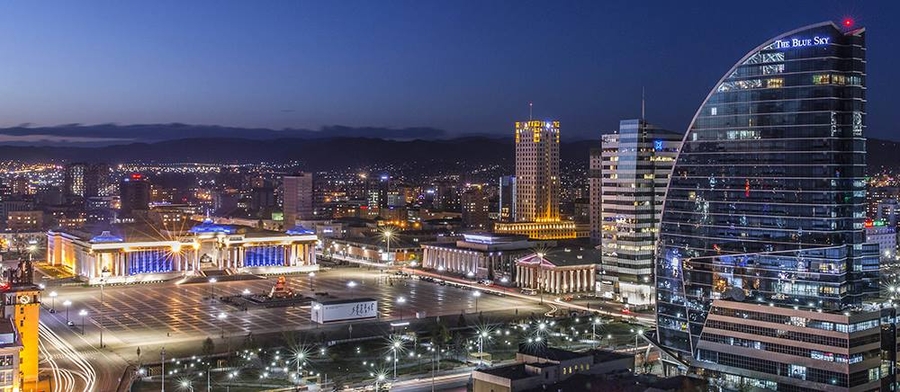
The 23rd Asian Physics Olympiad to be held in Mongolia www.montsame.mn
The 23rd Asian Physics Olympiad is going to be held in Mongolia from May 22 to 30, 2023.
The first APhO was initiated by and organized in Indonesia in 2000. About 240 students and over 60 instructors from over 30 Asian countries will participate in this year’s Olympiad.
Today, representatives of the host country received the symbolic flag of APhO.
This Olympiad aims,
- To evaluate the quality and assess the level of physics education;
- To support potential and talented children in physics and enable them to advance their knowledge;
- To experience and share diversified cultures across the region.
For the host country, organizing the APhO brings the following opportunities,
- To promote and advertise physics science;
- To identify the level of physics science development and students’ knowledge and skills of Asian countries;
- To develop foreign relations of Mongolian physics science sector;
-To support Mongolians interested in studying physics science and enable them to compete internationally.
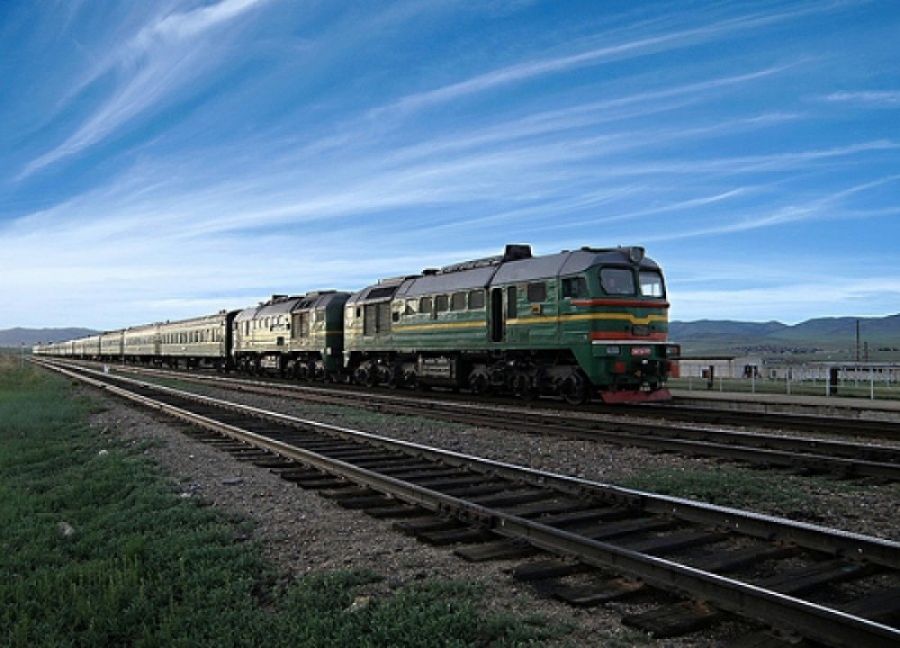
An official from Ulaanbaatar Railway JSC arrested and MNT 10 billion seized www.news.mn
S.Batdol, Deputy Head of Transport Organization Department of Ulaanbaatar Railway JSC has been arrested and over MNT 10 billion in cash seized in a raid during a crackdown on coal thief scheme. He was arrested yesterday night and detained for 48 hours.
He was appointed to the office in 2021 and became wealthy in a short period of time. Therefore, he was suspected for taking bribes and carrying out illegal coal transportation activities.
He has also accumulated a lot of real estate and services in his and his wife’s name, as well as a large amount of cash and foreign currency.
According to the sources, 5-6 places were searched and more than 10 billion MNT were seized. He has a large amount of things, luxury residential properties, and made some purchase and sale contracts.

The Erenhot: China-Mongolia trade hub to open after 1018 days www.news.mn
The Erenhot China-Mongolia border trading zone in north China’s Inner Mongolia Autonomous Region is about to open after closing for 1018 days. The border crossing will open at 08:00 a.m. on 8 January, 2023.
With a total investment of 350 million yuan (about 52.5 million U.S. dollars) and an area of some 100,000 square meters, the trading zone in the city of Erenhot covers a wide range of business activities including border trade, logistics and e-commerce, among other cross-border business services.
The city of Erenhot, in China’s Inner Mongolia Autonomous Region, is just 9 km from Zamyn Uud, in Dornogobi province in south‑eastern Mongolia, where the Mongolian government is building a free trade zone. Erenhot is the largest centre of rail and road links between China and Mongolia, and as such is a vital strategic location in cross‑border co‑operation between the two countries.

Supporting Mongolia’s Democracy is Key to a Free and Open Asia-Pacific www.moderndiplomacy.eu
In recent weeks, Mongolians participated in the second largest peaceful demonstrations since 1991, with hundreds of Mongolians participating in mass protests in Sukhbaatar Square in response to the allegations of billions of dollars stolen in export coal theft transactions to China with the involvement of more than a dozen Mongolian officials.
While most protests in Mongolia are held in the spring to avoid the frigid winter temperatures, the timing and magnitude of the current demonstrations call to mind the countrywide demonstrations in the winter of 1989 and 1990 leading up to Mongolia’s peaceful transition of power, and the emergence of a democratic Mongolian government in the spring of 1990.
This movement continues to characterize Mongolian civil society. Recent public protests are indicative of the problems inherent within the Mongolian political system, particularly corruption among political elite and the lack of enforcement by existing oversight mechanisms, as well as the country’s lack of economic diversification and reliance on mineral exports. However, the protests also represent the vitality of Mongolian civil society and the importance of continuing to invest in Mongolian civil society organizations and good governance initiatives.
Mongolia occupies a unique niche within Northeast Asia. It has only two direct neighbors, China and Russia. Both exert strong economic and political pressure on Mongolia, with roughly 86 percent of Mongolian exports sent to China, and 60 percent of its energy and fuel imports from Russia, with western Mongolia entirely dependent on Russian electricity.
Due to Mongolia’s reliance on its authoritarian neighbors, the country developed a “third-neighbor” strategy to strengthen its relations with other regional and international partners. This policy enables Mongolia to diversify its economic interests and investments, support civil society and uphold democratic norms in the country. During the COVID-19 pandemic, the “third-neighbor” strategy Mongolia built was hindered by border restrictions and languishing economic ties. However, throughout 2022 Mongolia sought to rebuild these relationships, two of the most prominent among them being with Japan and the United States.
2022 was a vibrant year for Mongolian multilateralism. It was the 50th anniversary of its diplomatic relations with Japan, and the 35th anniversary of U.S.-Mongolia diplomatic ties. Following a trilateral meeting held between the US, Japan, and Mongolia, the three countries released a joint statement which stressed the importance of maintaining the current rules-based international order in the Indo-Pacific, highlighted many shared global sentiments between the three countries, and discussed ongoing international developmental investments in Mongolia.
In November, Ulaanbaatar welcomed the new U.S. Ambassador to Mongolia, Richard Buangan, and officials from both countries emphasized their joint commitment to democracy, rule of law, and fundamental human rights that ensure free speech. President of Mongolia U. Khurelsukh arrived in Japan on November 29th, the first head-of-state visit from Mongolia to Japan in 12 years, reaffirming the two countries’ relationship and affirming joint efforts to contribute to peace and prosperity in the region.
Alongside top-level diplomatic interactions, both Japan and the U.S. are engaged in supporting good governance and furthering inclusive civil society development. The Mongolian Foreign Minister recently took part in the World Assembly for Women (WAW) held in Tokyo, which emphasizes female leadership and inclusion and brought together female leaders from around the world. Japan continues to be one of the top providers of Overseas Development Assistance (ODA) to Mongolia, with Mongolia receiving 299 million USD in bilateral ODA from Japan in 2020.
The Japan International Cooperation Agency (JICA) is also very active in Mongolia, and has major projects that focus on improving public financial management and inclusion in Mongolia’s government and civil society. The United States Agency for International Development (USAID) recently promised an additional $3 million to modernize the energy section and promote good governance in Mongolia, strengthening civil society organizations and independent media capacity.
There is still significant work needed to support Mongolian civil society and continue Mongolia’s development as an open, democratic state.
Mongolia’s economic resiliency remains tenuous while the state relies primarily on mineral exports and significant economic restructuring is key, particularly in the wake of the COVID-19 pandemic. The country’s economic growth is also hindered by corruption. While the OECD noted that petty corruption in Mongolia is gradually decreasing, high level corruption among government officials and the judiciary continues to be a major problem. Thus, there should be an emphasis on the creation of new laws that increase accountability and transparency within the Mongolian government and the enforcement of existing oversight laws and mechanisms, such as the Independent Authority against Corruption (IAAC). Additionally, as part of the Open Government Partnership, Mongolia has committed to improving the regulatory environment to ensure government accountability alongside establishing legal and regulatory frameworks for the autonomous development of civil society organizations in its 2023 National Action Plan.
International support can assist in this, both by working directly with government partners to provide anti-corruption training as well as promoting the inclusion of independent stakeholder and civil society groups that can hold the government accountable and help restore citizen trust in the Mongolian government. One concrete step Mongolian leadership can take in the next year to show their dedication to a free and open society is to engage in the 2023 Summit for Democracy. By not only attending the summit, which Mongolia has done in the past, but through proactively establishing commitments during the summit, Mongolia can further develop its third neighbor policies and strengthen civil society and democracy investment while balancing its relations with China and Russia.
Together with the United States, Japanese support of Mongolian civil society and Mongolia’s democratic norms strengthens the region as a whole. Programming within Mongolia, such as projects conducted by JICA and USAID, signify the investment in supporting civil society and upholding a rules-based order in Mongolia. This, in turn, is visible in the accountability Mongolians demand of their government in the ongoing recent protests. Ultimately, multinational engagement in Mongolia will further good governance and support Mongolia’s active civil society, continuing in the tradition of Mongolian independence and democracy.
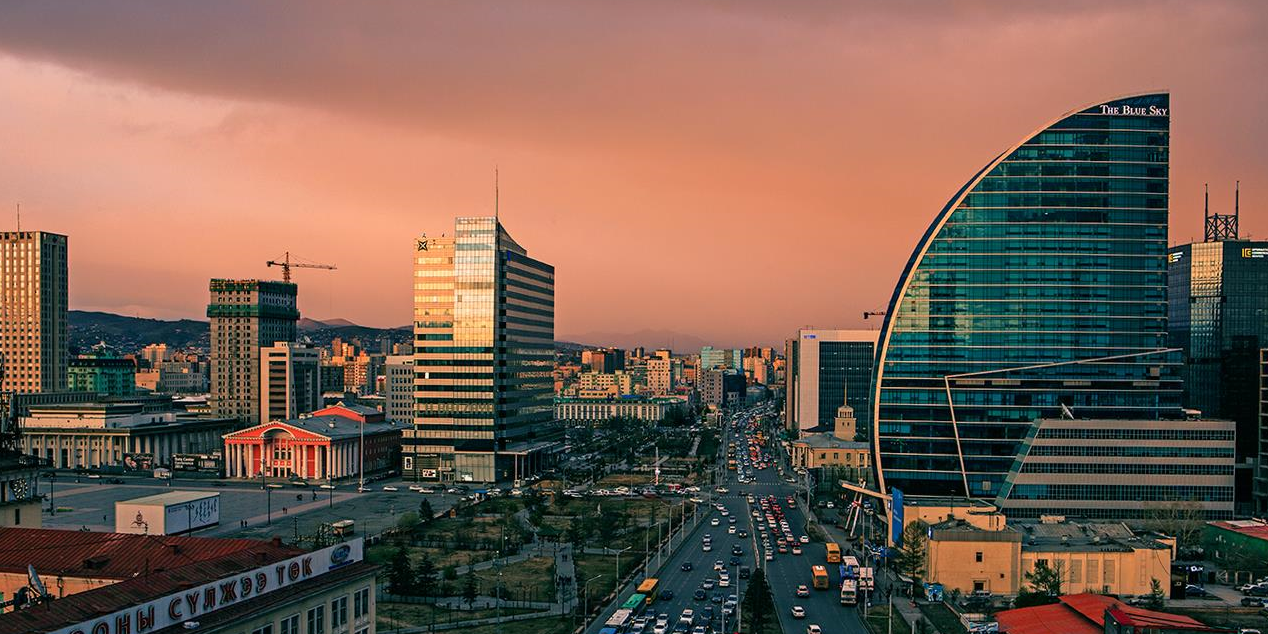
Mongolia's annual inflation stands at 13.2 pct in December www.inform.kz
The annual inflation rate for Mongolia rose by 13.2 percent year on year in December, data by the country's National Statistics Office (NSO) showed on Friday, Xinhua reports.
The increase was mainly due to the higher prices for imported goods, the NSO said.
However, the index decreased by 1.3 percent from a month earlier, it said.
There are 410 items in the landlocked Asian country's consumer goods and services basket, with more than half of them being imported, according to the statistical agency.
The country has set a goal of reducing its inflation rate back to single-digit levels by the end of 2023.

This Year Marks the 60th Anniversary of Mongolia-UK Diplomatic Relations www.montsame.mn
The diplomatic relations between Mongolia and the United Kingdom of Great Britain and Northern Ireland (UK) were established on January 23, 1963. The United Kingdom was the first western nation to establish diplomatic relations with Mongolia, among the other 24 countries that had had diplomatic relations with Mongolia.
Mongolia has long-standing diplomatic relations with the UK, spanning 60 years, and its beginning marked in history back in the 13th century. On January 5, 1290 or 733 years ago, an envoy of Arghun Khaan, the ruler of the Ilkhanate, delivered a letter to Edward I of England from Arghun Khaan. A copy of the response letter of Edward I of England has been preserved, which testifies his full support.
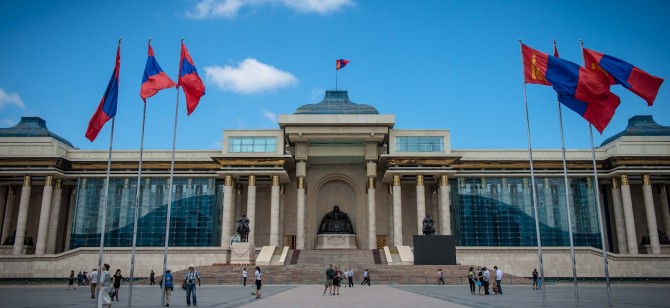
Prime Minister Appoints New Ministers www.montsame.mn
On January 5, Prime Minister L. Oyun-Erdene presented the proposal to appoint Minister of Economy and Development Ch. Khurelbaatar as the Deputy Prime Minister and Minister of Economy and Development, S. Chinzorig as a Cabinet member and a Minister of Health, Kh. Bulgantuya as a Cabinet member, Minister of Mongolia, and Chair of the National Commission of Border Port Recovery and Ts. Davaasuren as a Cabinet member and a Minister of Construction and Urban Development to State Great Khural within the scope of his power granted by the Constitution.
Accordingly, the State Great Khural discussed the proposed new candidates for the ministers, and the members raised questions and made speeches. After the discussion, the Prime Minister presented an ordinance on appointing the above-mentioned people as Cabinet members and ministers to the State Great Khural. Thus, the newly appointed ministers took the oath of office to the State Great Khural.
Based on the Constitution of Mongolia and the Law on Government, Prime Minister L. Oyun-Erdene signed the Ordinance on appointing some members of the Cabinet and presented the ratifications. Then, the Prime Minister highlighted that “I deeply believe our newly appointed Cabinet members would put painstaking efforts into successful implementation of “New Revival Policy” goals, aimed to solve constraints on development during this trying time when the pandemic and geopolitical crises hit the world.”
- «
- 1
- 2
- 3
- 4
- 5
- 6
- 7
- 8
- 9
- 10
- 11
- 12
- 13
- 14
- 15
- 16
- 17
- 18
- 19
- 20
- 21
- 22
- 23
- 24
- 25
- 26
- 27
- 28
- 29
- 30
- 31
- 32
- 33
- 34
- 35
- 36
- 37
- 38
- 39
- 40
- 41
- 42
- 43
- 44
- 45
- 46
- 47
- 48
- 49
- 50
- 51
- 52
- 53
- 54
- 55
- 56
- 57
- 58
- 59
- 60
- 61
- 62
- 63
- 64
- 65
- 66
- 67
- 68
- 69
- 70
- 71
- 72
- 73
- 74
- 75
- 76
- 77
- 78
- 79
- 80
- 81
- 82
- 83
- 84
- 85
- 86
- 87
- 88
- 89
- 90
- 91
- 92
- 93
- 94
- 95
- 96
- 97
- 98
- 99
- 100
- 101
- 102
- 103
- 104
- 105
- 106
- 107
- 108
- 109
- 110
- 111
- 112
- 113
- 114
- 115
- 116
- 117
- 118
- 119
- 120
- 121
- 122
- 123
- 124
- 125
- 126
- 127
- 128
- 129
- 130
- 131
- 132
- 133
- 134
- 135
- 136
- 137
- 138
- 139
- 140
- 141
- 142
- 143
- 144
- 145
- 146
- 147
- 148
- 149
- 150
- 151
- 152
- 153
- 154
- 155
- 156
- 157
- 158
- 159
- 160
- 161
- 162
- 163
- 164
- 165
- 166
- 167
- 168
- 169
- 170
- 171
- 172
- 173
- 174
- 175
- 176
- 177
- 178
- 179
- 180
- 181
- 182
- 183
- 184
- 185
- 186
- 187
- 188
- 189
- 190
- 191
- 192
- 193
- 194
- 195
- 196
- 197
- 198
- 199
- 200
- 201
- 202
- 203
- 204
- 205
- 206
- 207
- 208
- 209
- 210
- 211
- 212
- 213
- 214
- 215
- 216
- 217
- 218
- 219
- 220
- 221
- 222
- 223
- 224
- 225
- 226
- 227
- 228
- 229
- 230
- 231
- 232
- 233
- 234
- 235
- 236
- 237
- 238
- 239
- 240
- 241
- 242
- 243
- 244
- 245
- 246
- 247
- 248
- 249
- 250
- 251
- 252
- 253
- 254
- 255
- 256
- 257
- 258
- 259
- 260
- 261
- 262
- 263
- 264
- 265
- 266
- 267
- 268
- 269
- 270
- 271
- 272
- 273
- 274
- 275
- 276
- 277
- 278
- 279
- 280
- 281
- 282
- 283
- 284
- 285
- 286
- 287
- 288
- 289
- 290
- 291
- 292
- 293
- 294
- 295
- 296
- 297
- 298
- 299
- 300
- 301
- 302
- 303
- 304
- 305
- 306
- 307
- 308
- 309
- 310
- 311
- 312
- 313
- 314
- 315
- 316
- 317
- 318
- 319
- 320
- 321
- 322
- 323
- 324
- 325
- 326
- 327
- 328
- 329
- 330
- 331
- 332
- 333
- 334
- 335
- 336
- 337
- 338
- 339
- 340
- 341
- 342
- 343
- 344
- 345
- 346
- 347
- 348
- 349
- 350
- 351
- 352
- 353
- 354
- 355
- 356
- 357
- 358
- 359
- 360
- 361
- 362
- 363
- 364
- 365
- 366
- 367
- 368
- 369
- 370
- 371
- 372
- 373
- 374
- 375
- 376
- 377
- 378
- 379
- 380
- 381
- 382
- 383
- 384
- 385
- 386
- 387
- 388
- 389
- 390
- 391
- 392
- 393
- 394
- 395
- 396
- 397
- 398
- 399
- 400
- 401
- 402
- 403
- 404
- 405
- 406
- 407
- 408
- 409
- 410
- 411
- 412
- 413
- 414
- 415
- 416
- 417
- 418
- 419
- 420
- 421
- 422
- 423
- 424
- 425
- 426
- 427
- 428
- 429
- 430
- 431
- 432
- 433
- 434
- 435
- 436
- 437
- 438
- 439
- 440
- 441
- 442
- 443
- 444
- 445
- 446
- 447
- 448
- 449
- 450
- 451
- 452
- 453
- 454
- 455
- 456
- 457
- 458
- 459
- 460
- 461
- 462
- 463
- 464
- 465
- 466
- 467
- 468
- 469
- 470
- 471
- 472
- 473
- 474
- 475
- 476
- 477
- 478
- 479
- 480
- 481
- 482
- 483
- 484
- 485
- 486
- 487
- 488
- 489
- 490
- 491
- 492
- 493
- 494
- 495
- 496
- 497
- 498
- 499
- 500
- 501
- 502
- 503
- 504
- 505
- 506
- 507
- 508
- 509
- 510
- 511
- 512
- 513
- 514
- 515
- 516
- 517
- 518
- 519
- 520
- 521
- 522
- 523
- 524
- 525
- 526
- 527
- 528
- 529
- 530
- 531
- 532
- 533
- 534
- 535
- 536
- 537
- 538
- 539
- 540
- 541
- 542
- 543
- 544
- 545
- 546
- 547
- 548
- 549
- 550
- 551
- 552
- 553
- 554
- 555
- 556
- 557
- 558
- 559
- 560
- 561
- 562
- 563
- 564
- 565
- 566
- 567
- 568
- 569
- 570
- 571
- 572
- 573
- 574
- 575
- 576
- 577
- 578
- 579
- 580
- 581
- 582
- 583
- 584
- 585
- 586
- 587
- 588
- 589
- 590
- 591
- 592
- 593
- 594
- 595
- 596
- 597
- 598
- 599
- 600
- 601
- 602
- 603
- 604
- 605
- 606
- 607
- 608
- 609
- 610
- 611
- 612
- 613
- 614
- 615
- 616
- 617
- 618
- 619
- 620
- 621
- 622
- 623
- 624
- 625
- 626
- 627
- 628
- 629
- 630
- 631
- 632
- 633
- 634
- 635
- 636
- 637
- 638
- 639
- 640
- 641
- 642
- 643
- 644
- 645
- 646
- 647
- 648
- 649
- 650
- 651
- 652
- 653
- 654
- 655
- 656
- 657
- 658
- 659
- 660
- 661
- 662
- 663
- 664
- 665
- 666
- 667
- 668
- 669
- 670
- 671
- 672
- 673
- 674
- 675
- 676
- 677
- 678
- 679
- 680
- 681
- 682
- 683
- 684
- 685
- 686
- 687
- 688
- 689
- 690
- 691
- 692
- 693
- 694
- 695
- 696
- 697
- 698
- 699
- 700
- 701
- 702
- 703
- 704
- 705
- 706
- 707
- 708
- 709
- 710
- 711
- 712
- 713
- 714
- 715
- 716
- 717
- 718
- 719
- 720
- 721
- 722
- 723
- 724
- 725
- 726
- 727
- 728
- 729
- 730
- 731
- 732
- 733
- 734
- 735
- 736
- 737
- 738
- 739
- 740
- 741
- 742
- 743
- 744
- 745
- 746
- 747
- 748
- 749
- 750
- 751
- 752
- 753
- 754
- 755
- 756
- 757
- 758
- 759
- 760
- 761
- 762
- 763
- 764
- 765
- 766
- 767
- 768
- 769
- 770
- 771
- 772
- 773
- 774
- 775
- 776
- 777
- 778
- 779
- 780
- 781
- 782
- 783
- 784
- 785
- 786
- 787
- 788
- 789
- 790
- 791
- 792
- 793
- 794
- 795
- 796
- 797
- 798
- 799
- 800
- 801
- 802
- 803
- 804
- 805
- 806
- 807
- 808
- 809
- 810
- 811
- 812
- 813
- 814
- 815
- 816
- 817
- 818
- 819
- 820
- 821
- 822
- 823
- 824
- 825
- 826
- 827
- 828
- 829
- 830
- 831
- 832
- 833
- 834
- 835
- 836
- 837
- 838
- 839
- 840
- 841
- 842
- 843
- 844
- 845
- 846
- 847
- 848
- 849
- 850
- 851
- 852
- 853
- 854
- 855
- 856
- 857
- 858
- 859
- 860
- 861
- 862
- 863
- 864
- 865
- 866
- 867
- 868
- 869
- 870
- 871
- 872
- 873
- 874
- 875
- 876
- 877
- 878
- 879
- 880
- 881
- 882
- 883
- 884
- 885
- 886
- 887
- 888
- 889
- 890
- 891
- 892
- 893
- 894
- 895
- 896
- 897
- 898
- 899
- 900
- 901
- 902
- 903
- 904
- 905
- 906
- 907
- 908
- 909
- 910
- 911
- 912
- 913
- 914
- 915
- 916
- 917
- 918
- 919
- 920
- 921
- 922
- 923
- 924
- 925
- 926
- 927
- 928
- 929
- 930
- 931
- 932
- 933
- 934
- 935
- 936
- 937
- 938
- 939
- 940
- 941
- 942
- 943
- 944
- 945
- 946
- 947
- 948
- 949
- 950
- 951
- 952
- 953
- 954
- 955
- 956
- 957
- 958
- 959
- 960
- 961
- 962
- 963
- 964
- 965
- 966
- 967
- 968
- 969
- 970
- 971
- 972
- 973
- 974
- 975
- 976
- 977
- 978
- 979
- 980
- 981
- 982
- 983
- 984
- 985
- 986
- 987
- 988
- 989
- 990
- 991
- 992
- 993
- 994
- 995
- 996
- 997
- 998
- 999
- 1000
- 1001
- 1002
- 1003
- 1004
- 1005
- 1006
- 1007
- 1008
- 1009
- 1010
- 1011
- 1012
- 1013
- 1014
- 1015
- 1016
- 1017
- 1018
- 1019
- 1020
- 1021
- 1022
- 1023
- 1024
- 1025
- 1026
- 1027
- 1028
- 1029
- 1030
- 1031
- 1032
- 1033
- 1034
- 1035
- 1036
- 1037
- 1038
- 1039
- 1040
- 1041
- 1042
- 1043
- 1044
- 1045
- 1046
- 1047
- 1048
- 1049
- 1050
- 1051
- 1052
- 1053
- 1054
- 1055
- 1056
- 1057
- 1058
- 1059
- 1060
- 1061
- 1062
- 1063
- 1064
- 1065
- 1066
- 1067
- 1068
- 1069
- 1070
- 1071
- 1072
- 1073
- 1074
- 1075
- 1076
- 1077
- 1078
- 1079
- 1080
- 1081
- 1082
- 1083
- 1084
- 1085
- 1086
- 1087
- 1088
- 1089
- 1090
- 1091
- 1092
- 1093
- 1094
- 1095
- 1096
- 1097
- 1098
- 1099
- 1100
- 1101
- 1102
- 1103
- 1104
- 1105
- 1106
- 1107
- 1108
- 1109
- 1110
- 1111
- 1112
- 1113
- 1114
- 1115
- 1116
- 1117
- 1118
- 1119
- 1120
- 1121
- 1122
- 1123
- 1124
- 1125
- 1126
- 1127
- 1128
- 1129
- 1130
- 1131
- 1132
- 1133
- 1134
- 1135
- 1136
- 1137
- 1138
- 1139
- 1140
- 1141
- 1142
- 1143
- 1144
- 1145
- 1146
- 1147
- 1148
- 1149
- 1150
- 1151
- 1152
- 1153
- 1154
- 1155
- 1156
- 1157
- 1158
- 1159
- 1160
- 1161
- 1162
- 1163
- 1164
- 1165
- 1166
- 1167
- 1168
- 1169
- 1170
- 1171
- 1172
- 1173
- 1174
- 1175
- 1176
- 1177
- 1178
- 1179
- 1180
- 1181
- 1182
- 1183
- 1184
- 1185
- 1186
- 1187
- 1188
- 1189
- 1190
- 1191
- 1192
- 1193
- 1194
- 1195
- 1196
- 1197
- 1198
- 1199
- 1200
- 1201
- 1202
- 1203
- 1204
- 1205
- 1206
- 1207
- 1208
- 1209
- 1210
- 1211
- 1212
- 1213
- 1214
- 1215
- 1216
- 1217
- 1218
- 1219
- 1220
- 1221
- 1222
- 1223
- 1224
- 1225
- 1226
- 1227
- 1228
- 1229
- 1230
- 1231
- 1232
- 1233
- 1234
- 1235
- 1236
- 1237
- 1238
- 1239
- 1240
- 1241
- 1242
- 1243
- 1244
- 1245
- 1246
- 1247
- 1248
- 1249
- 1250
- 1251
- 1252
- 1253
- 1254
- 1255
- 1256
- 1257
- 1258
- 1259
- 1260
- 1261
- 1262
- 1263
- 1264
- 1265
- 1266
- 1267
- 1268
- 1269
- 1270
- 1271
- 1272
- 1273
- 1274
- 1275
- 1276
- 1277
- 1278
- 1279
- 1280
- 1281
- 1282
- 1283
- 1284
- 1285
- 1286
- 1287
- 1288
- 1289
- 1290
- 1291
- 1292
- 1293
- 1294
- 1295
- 1296
- 1297
- 1298
- 1299
- 1300
- 1301
- 1302
- 1303
- 1304
- 1305
- 1306
- 1307
- 1308
- 1309
- 1310
- 1311
- 1312
- 1313
- 1314
- 1315
- 1316
- 1317
- 1318
- 1319
- 1320
- 1321
- 1322
- 1323
- 1324
- 1325
- 1326
- 1327
- 1328
- 1329
- 1330
- 1331
- 1332
- 1333
- 1334
- 1335
- 1336
- 1337
- 1338
- 1339
- 1340
- 1341
- 1342
- 1343
- 1344
- 1345
- 1346
- 1347
- 1348
- 1349
- 1350
- 1351
- 1352
- 1353
- 1354
- 1355
- 1356
- 1357
- 1358
- 1359
- 1360
- 1361
- 1362
- 1363
- 1364
- 1365
- 1366
- 1367
- 1368
- 1369
- 1370
- 1371
- 1372
- 1373
- 1374
- 1375
- 1376
- 1377
- 1378
- 1379
- 1380
- 1381
- 1382
- 1383
- 1384
- 1385
- 1386
- 1387
- 1388
- 1389
- 1390
- 1391
- 1392
- 1393
- 1394
- 1395
- 1396
- 1397
- 1398
- 1399
- 1400
- 1401
- 1402
- 1403
- 1404
- 1405
- 1406
- 1407
- 1408
- 1409
- 1410
- 1411
- 1412
- 1413
- 1414
- 1415
- 1416
- 1417
- 1418
- 1419
- 1420
- 1421
- 1422
- 1423
- 1424
- 1425
- 1426
- 1427
- 1428
- 1429
- 1430
- 1431
- 1432
- 1433
- 1434
- 1435
- 1436
- 1437
- 1438
- 1439
- 1440
- 1441
- 1442
- 1443
- 1444
- 1445
- 1446
- 1447
- 1448
- 1449
- 1450
- 1451
- 1452
- 1453
- 1454
- 1455
- 1456
- 1457
- 1458
- 1459
- 1460
- 1461
- 1462
- 1463
- 1464
- 1465
- 1466
- 1467
- 1468
- 1469
- 1470
- 1471
- 1472
- 1473
- 1474
- 1475
- 1476
- 1477
- 1478
- 1479
- 1480
- 1481
- 1482
- 1483
- 1484
- 1485
- 1486
- 1487
- 1488
- 1489
- 1490
- 1491
- 1492
- 1493
- 1494
- 1495
- 1496
- 1497
- 1498
- 1499
- 1500
- 1501
- 1502
- 1503
- 1504
- 1505
- 1506
- 1507
- 1508
- 1509
- 1510
- 1511
- 1512
- 1513
- 1514
- 1515
- 1516
- 1517
- 1518
- 1519
- 1520
- 1521
- 1522
- 1523
- 1524
- 1525
- 1526
- 1527
- 1528
- 1529
- 1530
- 1531
- 1532
- 1533
- 1534
- 1535
- 1536
- 1537
- 1538
- 1539
- 1540
- 1541
- 1542
- 1543
- 1544
- 1545
- 1546
- 1547
- 1548
- 1549
- 1550
- 1551
- 1552
- 1553
- 1554
- 1555
- 1556
- 1557
- 1558
- 1559
- 1560
- 1561
- 1562
- 1563
- 1564
- 1565
- 1566
- 1567
- 1568
- 1569
- 1570
- 1571
- 1572
- 1573
- 1574
- 1575
- 1576
- 1577
- 1578
- 1579
- 1580
- 1581
- 1582
- 1583
- 1584
- 1585
- 1586
- 1587
- 1588
- 1589
- 1590
- 1591
- 1592
- 1593
- 1594
- 1595
- 1596
- 1597
- 1598
- 1599
- 1600
- 1601
- 1602
- 1603
- 1604
- 1605
- 1606
- 1607
- 1608
- 1609
- 1610
- 1611
- 1612
- 1613
- 1614
- 1615
- 1616
- 1617
- 1618
- 1619
- 1620
- 1621
- 1622
- 1623
- 1624
- 1625
- 1626
- 1627
- 1628
- 1629
- 1630
- 1631
- 1632
- 1633
- 1634
- 1635
- 1636
- 1637
- 1638
- 1639
- 1640
- 1641
- 1642
- 1643
- 1644
- 1645
- 1646
- 1647
- 1648
- 1649
- 1650
- 1651
- 1652
- 1653
- 1654
- 1655
- 1656
- 1657
- 1658
- 1659
- 1660
- 1661
- 1662
- 1663
- 1664
- 1665
- 1666
- 1667
- 1668
- 1669
- 1670
- 1671
- 1672
- 1673
- 1674
- 1675
- 1676
- 1677
- 1678
- 1679
- 1680
- 1681
- 1682
- 1683
- 1684
- 1685
- 1686
- 1687
- 1688
- 1689
- 1690
- 1691
- 1692
- 1693
- 1694
- 1695
- 1696
- 1697
- 1698
- 1699
- 1700
- 1701
- 1702
- 1703
- 1704
- 1705
- 1706
- 1707
- 1708
- 1709
- 1710
- 1711
- 1712
- 1713
- 1714
- 1715
- 1716
- »






